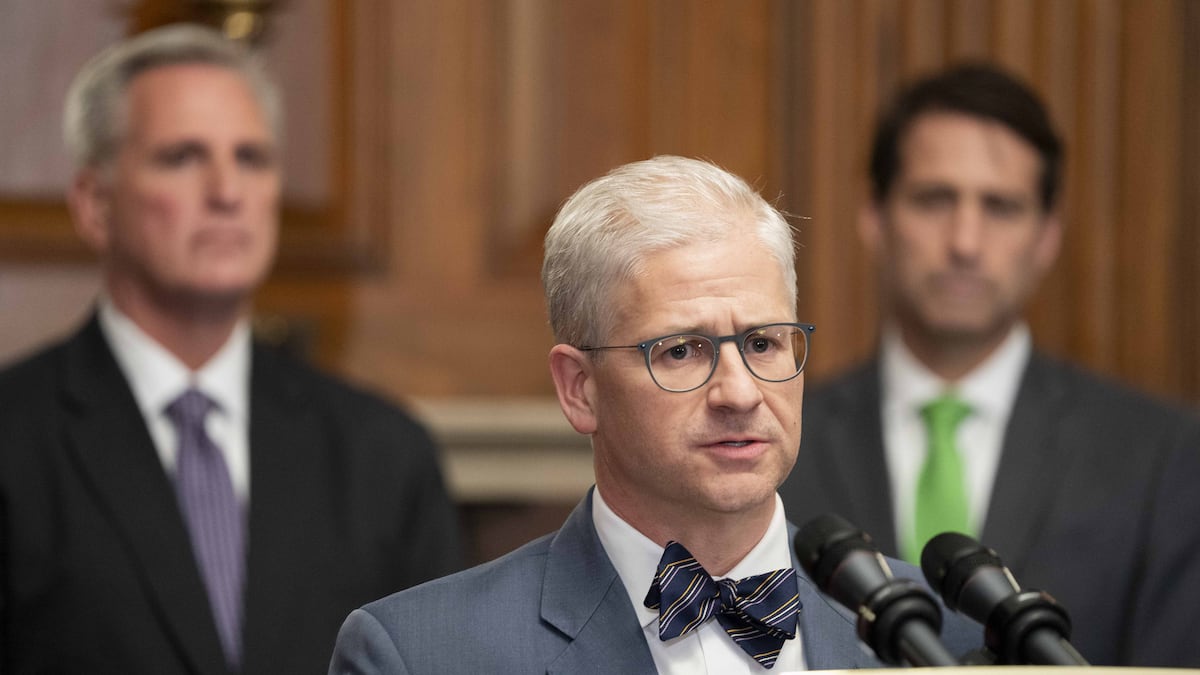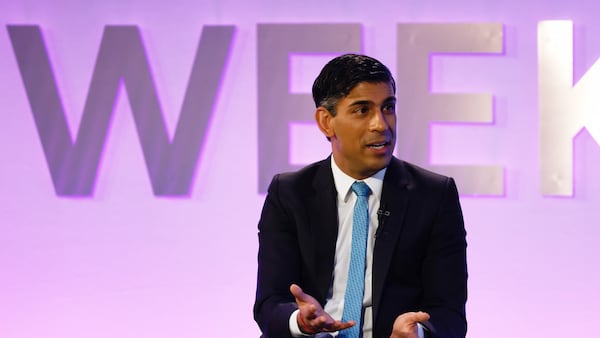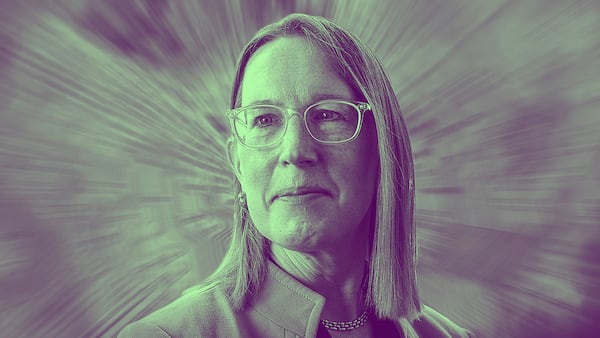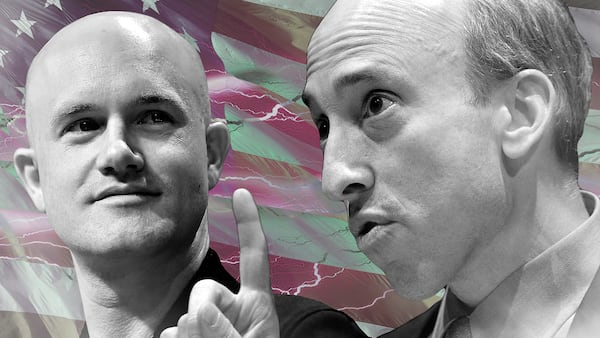- Hearing on two proposed crypto bills draws out lawmakers’ positions as SEC presses crackdown.
- Chair Patrick McHenry chastises SEC Chair Gensler for focusing on Kim Kardashian case instead of Binance.
- Democrats warn draft bill may not prevent crypto firms from co-mingling customers deposits and company funds.
As the crypto market reels from a US regulatory crackdown that has targeted Coinbase and Binance, investors have turned to a new source of hope — a bow-tie wearing congressman from North Carolina.
Patrick McHenry, the Republican chairman of the House Financial Services Committee, has co-authored two bills that could bring much-desired clarity to the digital assets industry in the US.
But crypto supporters counting on McHenry might be disappointed. The nine-term representative’s views on crypto may not be so simple. For one, he’s not a Binance fan, and he says Gary Gensler should have moved quicker to punish the world’s biggest crypto exchange.
“I think they’re an illegal actor — transacting in illicit finance,” McHenry told DL News on the sidelines of a Tuesday hearing on his legislation. “They don’t adhere to the rule of law, but frankly, we don’t actually have a set of rules for the United States.”
Bad actors
The congressman continued: “So we’ve got to do our work so we can chase bad actors much more efficiently And frankly, Binance should have been taken out years ago.”
Last week, the US Securities and Exchange Commission charged Binance and Changpeng Zhao, its founder and CEO, with 13 violations of federal law connected to its alleged failure to register as an exchange, broker-dealer, and clearing firm. Binance and Zhao have denied the allegations in the lawsuit and vowed to defend themselves in court.
Asked whether he thought federal prosecutors would follow the SEC’s lead and make a criminal case against Binance, McHenry said: “Yeah, but the SEC should have taken action rather than going after Kim Kardashian.”
NOW READ: Feds grab win against Ooki DAO but who will pay the $650,000 penalty?
McHenry’s quip was a reference to the SEC’s decision last October to charge the reality TV star with unlawfully shilling EMAX, a digital token. Kardashisn settled the claim and paid $1.3 million in penalties.
The case drew ridicule from Gensler’s many critics but now comes ia pivotal moment as top players such as Coinbase CEO Brian Armstrong struggle to fend off the SEC’s push to apply existing securities laws to digital assets.
‘So we’ve got to do our work so we can chase bad actors much more efficiently And frankly, Binance should have been taken out years ago.’
— Patrick McHenry
In contrast to the European Union, which is already implementing its MiCA regime for crypto regulation, the US is pursuing a “regulation by enforcement” approach, in the words of Armstrong.
This is why focus has turned to the draft legislation and commentary now under way in McHenry’s committee. The chair’s fellow Republicans have endorsed several of the crypto industry’s wish-list items. For instance, it would enable a security to morph into a commodity, a process sought by digital assets entrepreneurs to bolster flexibility in their industry.
Legal doctrine
The proposed bill, which is still in draft form, also includes a number of exemptions for crypto companies from the SEC’s registration process. This is important because under Gensler the commission has pushed hard to define most cryptocurrencies as securities subject to the same laws and rules as stock and bonds.
This legal doctrine lies at the heart of the SEC’s lawsuits against Coinbase and Binance.
No surprise, the proposed legislation has divided Republicans and Democrats, with the former mostly favouring a regime that carves out special consideration for crypto, and the latter hewing more closely to Gensler’s approach.
NOW READ: Lawyers lay out what’s at stake in Curve founder lawsuit
“I’m particularly worried that the Republican bill would allow crypto firms that are currently being sued for violating our securities laws to continue doing business with provisional registration,” said Maxine Waters, the leading Democrat on the committee, in her opening remarks at Tuesday’s hearing. “The bill appears to halt any enforcement actions by the SEC against crypto firms even when they have committed fraud.”
Warren Davidson, a Republican congressman from Ohio, countered by saying Gensler was overstepping his authority.
“A lot of the problem has been a combination of Gary Gensler and his willingness to use all the power that he can, regardless of the facts of any particular situation, to accomplish an agenda,” Davidson told DL News.
Early stages
While the legislative process is still in its early stages, it appears likely the revelations to come in the regulatory cases will be driving the narrative. In the Binance case, the SEC contends Zhao directed the comingling of billions of dollars worth of customer deposits with assets in corporate entities he controlled.
This practice is also at the heart of the Department of Justice’s criminal case against Sam Bankman-Fried and FTX, the crypto exchange that went bankrupt last November.
NOW READ: EU data bill threatens to upend smart contracts in potential blow for DeFi
At Tuesday’s hearing, Jim Himes, a Connecticut Democrat, highlighted the need to maintain separate customer and business assets. While the crypto draft bill bans commingling funds, it features an exemption for “convenience.” which drew scepticism from Himes.
“Do I worry that Binance is being used by bad players?,” Himes said in an interview with DL News. “Do I worry that they themselves are bad players? I mean, look, they’re on record having said, you know, having bragged about breaking the law.”



